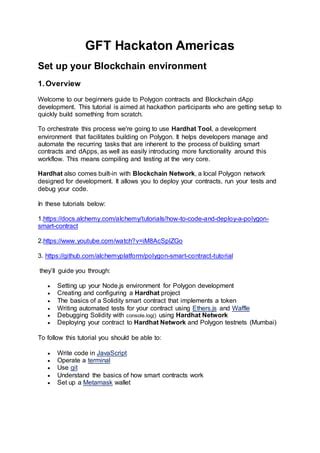Here’s an article on using Ethers.js to connect Metamask to a Local Hardhat Node Provider:
Connecting Metamask to a Local Hardhat Node Provider with Ethers.js
When developing decentralized applications (dApps) that require interacting with external services like MetaMask or Web3 providers, connecting them to a local hardhat node is crucial. In this article, we’ll explore how to use Ethers.js to achieve this connection.
Why Use Ethers.js?
Ethers.js is the official JavaScript library for interacting with the Ethereum blockchain. It provides a simple and intuitive API for working with Web3 providers like MetaMask, Web3.js, and more. Using Ethers.js, you can easily connect your local hardhat node to external services without worrying about setting up additional infrastructure or configurations.
Setting Up the Local Hardhat Node
Before we dive into connecting Metamask, ensure that your local hardhat node is set up correctly. Here’s a brief overview of the steps:
- Install the
truffleframework: Truffle provides a way to manage and interact with your blockchain projects using JavaScript.
- Set up a new project directory and initialize it:
mkdir metamask-connection-example
cd metamask-connection-example
npx truffle init
- Create a new contract file (e.g.,
MyContract.sol) inside the project directory:
pragma solidity ^0.8.0;
contract MyContract {
uint256 public value;
}
- Compile and deploy your contract:
truffle compilation
truffle deploy
Connecting Metamask with Ethers.js
Now that you have a local hardhat node set up, let’s connect Metamask using Ethers.js. We’ll use the ethers.js library to interact with MetaMask.
Create a new file called metamask-connection.js and add the following code:
const ethers = require('ethers');
// Set the contract address and ABI
const contractAddress = '0x...'; // Replace with your contract's address
const abi = [...]; // Replace with your contract's ABI
// Create a new Ethers provider instance for your local hardhat node
const provider = new ethers.providers.HttpProvider('
// Create a new Ethers.js wallet instance using the MetaMask provider
const wallet = new ethers.Wallet(provider, '0x...'); // Replace with your MetaMask private key
// Get the contract instance using the wallet
const contractInstance = new ethers.Contract(contractAddress, abi, wallet);
// Now you can use the contract instance to interact with the blockchain
contractInstance.value.set(123);
Example Usage

Here’s an example of how you can use the Metamask connection to set a value on your contract:
metamask-connection.js
Assuming you have a MyContract.sol file in the same directory, you can call the following function to update the contract instance:
setValue = (value) => {
contractInstance.value.set(value);
}
Tips and Variations
- Make sure to replace the
contractAddress,abi, andwalletvariables with your actual contract address, ABI, and MetaMask private key.
- You can also use other Ethers.js providers like
or
- If you’re using a different Web3 provider (e.g., Web3.js), you’ll need to adjust the connection code accordingly.
By following these steps and examples, you should now be able to connect your local hardhat node to Metamask with Ethers.js. Happy building!

